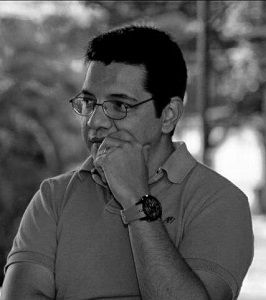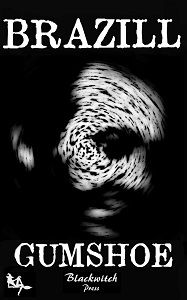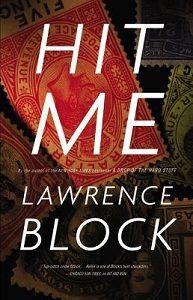
J.H. Bográn is a thriller writer who was born and raised in Honduras. He has a new novel out, Firefall. It is about a firefighter whose life falls apart and who takes a job investigating insurance fraud.
José met me at The Slaughterhouse where we talked about his new release and Honduras.
Tell us about Firefall.
 New York City firefighter, Sebastian Martin, seeks sanctuary in spiraling alcoholic oblivion following the loss of his wife and child in an air crash. Consumed by rage and resentment, directed against his brother and uncle, he takes a last-ditch job in Dallas, Texas, investigating insurance fraud.
New York City firefighter, Sebastian Martin, seeks sanctuary in spiraling alcoholic oblivion following the loss of his wife and child in an air crash. Consumed by rage and resentment, directed against his brother and uncle, he takes a last-ditch job in Dallas, Texas, investigating insurance fraud.
But more than a thriller tale, Firefall is the first novel where I use locations found in my own country, Honduras. Previous works had my characters running around New York, Frankfort, and London among others. However, here we find not only Sebastian’s new partner based in Honduras, but half into the book, he actually travels down there too.
You probably noticed that Sebastian’s new job is investigating insurance fraud. I have a couple of friends who are insurance adjusters. Oh the horror tales they’ve shared with me! Some of those cases were truly stranger than fiction. The idea of a globe-trotting investigator is what led me to select that profession for my recently widowed main character.
Do you draw on the pre-colonial psyche of Honduras and how does the world vision of it differ from that of a guilt ridden colonialist West?
In short, no.
However, there is another post-colonial influence in Honduras from where I did draw.
First of all, unlike the United States, Honduras was conquered and exploited for three centuries by Spain. The country confirmed its independence in a joint declaration with the other four countries of Central America on September 15, 1821. (Now ask me why the release of Firefall was on Sept/15/2013).
Honduras is an oddity.
During the first half of the 20th century, two American companies invested heavily in Honduras and made it their headquarters for the pineapple and banana production in the area. The influence of the companies were such that many areas where they had plantations or offices to this day still carry names in English. The original working title of the novel was Highland Creek, which is a location near the town of Tela where the climax of the novel takes place. Yes, that’s an English name for a location in a Spanish-speaking country. Of course, we had to rename the novel because there were comments of Highland Creek sounding Irish. 🙂
Here are other examples of influence: Even when we are subscribed to the Metric System, the 99% of the fuel pumps in the country dispatch gasoline in gallons, but we measure distances in Kilometers. We give our height in meters, but our weight in pounds. We buy fabric by the yard and eggs by the dozen, but measure constructing sites in square meters, and so forth. And I won’t even go into the role Honduras played during the 80’s in America’s war against the red threat.
Still, I looked at many of those little bits and wove some of them into the story.
Do you think that crime fiction sanitizes crime?
Yes, to a certain point I think it does.
Our society has a knack for idolizing bad guys like Robin Hood, Billy The Kid, or even John Dillinger. We rooted for Danny Ocean to steal the money from the casino in Las Vegas and get away with it. We wanted small time crook Porter, played by Mel Gibson, to get his payback in the eponymous film.
However, no amount of sanitized crime can save us from a crueler reality. We were thrilled reading Tom Clancy’s Debt of Honor when a jet crashed and burned into the Capitol building and promoted Jack Ryan to the presidency of the U.S.A. Then again, we were terrified when in real life two jets crashed and burned into the World Trade Center in New York.
What do you make of the E Book revolution?
I’m all for it. Let me dust off that old major in Business I got from college and dazzle you with some cold hard numbers.
My average was a meager 12 – 15 books per year.
Reading books for me used to mean always having a novel next to my bed and reading a few pages every night, and twice on Sunday. I would have a second book, generally a non-fiction, poetry or short story collection in the car’s glove compartment. I would take the second book for lines in banks, doctors, whatever.
Ebooks give you a freedom to read anything, anywhere and anytime. And the beauty of the app is that whatever page I stop reading on my phone will be the same page I’d be taken to by the auto synch when I switch on any other reading device registered to my account.
With the advent of e-book devices, and most importantly, reading apps for smart phones, computers and tablets, I’ve been able to read more. As of September, I have finished 23 books this year alone. Only four of them were printed.
By now you know I’m all for trivia, right? Last year I bought a nice hard cover anniversary edition of Gone With the Wind. I figured that after 40 years of loving the movie I was way overdue on reading the source material. A third into the book my wrists started to complain about the hefty 950+ page mammoth. I said fiddle-dee-dee! and went on line to buy the ebook version. Problem solved. Yes, the hard cover still looks wonderful in my bookcase.
Do you think the publishing industry is in trouble?
I think the publishing industry is no more in danger than the arms manufacturing industry.
It’s a simple offer and demand issue. There will always be people wanting to read, ergo, there will be something to read.
You don’t believe me? How many times have you found yourself reading the back of cereal boxes because you were eating breakfast alone and yearned for some reading while the newspaper lay beyond your reach?
We live in exciting times when the publishing industry is going through changes that are shaking their centuries-old foundations. Some of the key elements in the industry as we know it now will change, I’m sure, but it will morph into something that will serve its new purposes.
An oversimplification of the fact is that books are the delivery device for knowledge or entertainment. Students will ensure the survival of non-fiction books in whatever form they evolve into. We, as fiction writers, are entertainers, and we will find ways to deliver our tales—our products—to people, even if we have to go back on the roads like the troubadours of old. Although, I my age, I’d hate to learn to play the mandolin.
Grahame Greene wrote, ‘There is a splinter of ice in the heart of a writer.’ What do you make of his observation?
Well no, I think the warmth of our heart would melt any ice there. More than a sliver of ice, I’d qualify the sentiment as extreme empathy.
It is not that we detach from the circumstances and try to spin every little thing from our life into a novel. On the contrary, we draw from those feelings and pour them into our writing. Think of “Method Acting” were the actors go to extreme lengths to characterize a role—they say Robert De Niro used underwear typical of the time period when he played Al Capone in The Untouchables—in the same manner, we channel previous feelings through the tips of our fingers and bleed them into the pages.
A couple of years ago my kids were watching one of those dumb shows about accidents caught on video. I remember a clip about a young man who was dared by his drunk friends into spitting fire. He swung the bottle of alcohol and spit the clear liquid into an open flame, with such bad luck—or lack of a forceful spitting—that he was engulfed in flames burning all the way to the insides of his mouth and lungs. The images of the man on fire made a lasting impression on me. Then, a few months later I penned this flash fiction bit titled Experts Make It Look Easy:
Tired of cleaning windshields with a rag, Peter imitated another beggar’s daring act; practiced a full day but couldn’t spare the fuel to rehearse the grand finale. When he returned to his street he twirled the fired-up baton, tossed it up in the air, and then caught it in mid fall. Many heads turned as Peter took a mouthful of inflammable liquid. Kids gaped, faces glued to car windows like stuffed Garfield dolls. Peter spat fluid into the flame but the hot luminous ball reached him. Now Peter begs while a rag scarcely covers his burnt face.
Now I’m wondering if in doing so, we become “method writers.”
How important is location to you in your writing?
In some of my stories the location is inconsequential because they are events that could take place anywhere in the world. In those cases, the absence of location is intentional. In others, the place where the events happen reaches such high importance that they almost become an extra character.
One of my favorite parts when working on new project is the research. Once I determine the location, I try to learn as much as I can of the place. Visit if I can, study maps if I must. I interview not only locals, but people who got there later in life as to get their perception too.
For example, in Firefall, the main character is a New Yorker who has to begin a new life in Dallas. The cowboy-themed culture, the accent in there speech, even the music they play on the radio, they all add up to create a shock to the newcomer. And of course, the novel is not a “stranger comes to town” one, but those bit increase the depth and realism to the character.
And that’s just the big picture. Then there are the micro-locations such as bars, houses, offices, hospital rooms, bed rooms, et al.
When I determine the exact location of where a scene takes place, I have to know the dimensions of the rooms, where the furniture is located, sometimes even the colors of the paint on the wall. Thus, I draw a little layout with all the details so they are clear in my mind, even if I don’t include all of them into the story.
For determining which details to incorporate I use the maxim that less is more, and only mention the ones that are relevant to the character or they help setup the mood. For example, if the character is sad, I mention the tittle of that song playing on the bar’s jukebox that makes him want slit his wrists.
What are you working on now?
I’m working on a novel about a serial killer prowling New Orleans. Here’s a brief description:
In A Killer in a Blind Spot, a retired P.I. joins a journalist to hunt down a serial killer who uses poisonous animals as murder weapons.
Alan Knox hates New Orleans, that’s where his football career ended. Yet, he returns after a call from his son. When the N.O.P.D rules three dead women as accidents—one of them his son’s fiancée, Alan teams up with former star journalist Scott Trent to expose a serial killer whose weapon choices include deadly scorpions, snakes, and box jellyfish. The feature article generates plenty of attention, perhaps too much attention. Trent’s wife becomes the next victim while he lands at the top of the suspect’s list. In the meantime, Alan follows the breadcrumbs all the way to the city’s highest circles of power, where he uncovers a plot to assassinate the first female mayor of New Orleans.
I was blessed with the opportunity to visit The Big Easy twice. I stood on the exact spots where my killer drops the victim’s bodies, interviewed people from the police department, the city morgue and locals in general.
With the editing of Firefall, plus other two movie script projects that came my way, it wasn’t until earlier this year when I completed the first draft. I’m working on the second draft now, and expect to have it ready to send out by end of the year.
What advice would you give to yourself as a younger man?
Oh, you so did hit a nerve with this question because many times I have thought about going back in time.
I actually have two versions of this ambition of sorts: The first version is similar to your question; it involves meeting the younger version of me to give him the poor bastard some pointers.
The other one is regressing in time, and I am in my own younger self, say back in 1985, but with the knowledge of the future in my mind. I picture myself writing a bunch of letters and sealed envelopes marked “do not open until…” giving me the tips and reminders to avoid the wrong choices and keeping the right ones. You see, I fear losing the good stuff like my wife and kids.
Ahem, sorry. I think I digressed a bit. Back to your original question, I’d give my younger self two tips:
1. Work on developing organization skills so it doesn’t take me over 2 years to finish a novel!
2. Never lose the faith, keep working even in the dark times.
How much sexual pathology do you think there is in murder?
I came across this interesting bit. It looks like sexual pathology and its relation to murder has occupied the mind of doctors for a good time now.
To me, it all comes down to the specific circumstances of the murder. For example: picture an average man, he walks into his house and discovers a rapist having his way with the man’s daughter or wife. The man goes to the closet, gets the shotgun, and aims to the head before squeezing the trigger. Boom. Bits of skull, hair, and gray matter scatter over the opposite wall. Then it’s up to his lawyer to get the man acquitted with a diagnosis of Temporary Insanity.
In this case, the murderer suffered from no pathology at all. . . or maybe he did, but it’s not relevant to this case.
A few years ago I wrote a story about a guy who falls in love with a woman suffering from Multiple Personality Disorder, I titled it—what else?—“Love Me Two Times.” While doing the research for that novella I read a couple of books on basic phycology. The knowledge has come in handy when developing many of my recent bad guys.
When applied to murders it usually encompasses the deviant behaviors that can also be found in other crimes, for example the rapist from the first paragraph.
It would be too much of a hyperbole to claim all murders are motivated in some degree by the sexual pathology of the murderer, however, it doesn’t take a long stretch of mind to believe it. It certainly feels possible, and perception, as they say in politics, is the key.
Thank you José for a perceptive and informative interview.
 José H. Bográn, born and raised in Honduras, is the son of a journalist. He ironically prefers to write fiction rather than fact. José’s genre of choice is thrillers, but he likes to throw in a twist of romance into the mix. His works include novels and short stories in both English and Spanish. He’s a member of the Short Fiction Writers Guild and the International Thriller Writers where he also serves as the Thriller Roundtable Coordinator and contributor editor their official e-zine The Big Thrill.
José H. Bográn, born and raised in Honduras, is the son of a journalist. He ironically prefers to write fiction rather than fact. José’s genre of choice is thrillers, but he likes to throw in a twist of romance into the mix. His works include novels and short stories in both English and Spanish. He’s a member of the Short Fiction Writers Guild and the International Thriller Writers where he also serves as the Thriller Roundtable Coordinator and contributor editor their official e-zine The Big Thrill.
Website at: www.jhbogran.com
Facebook: www.facebook.com/jhbogran
Twitter: @JHBogran
Goodreads: http://www.goodreads.com/author/show/4307673.J_H_Bogran
Amazon author page: https://www.amazon.com/author/jhbogran
Firefall buy links:
Rebel E Publishers: http://rebelepublishers.com/about/our-books/firefall/
Amazon US and Amazon UK
Smashwords: https://www.smashwords.com/books/view/355941













